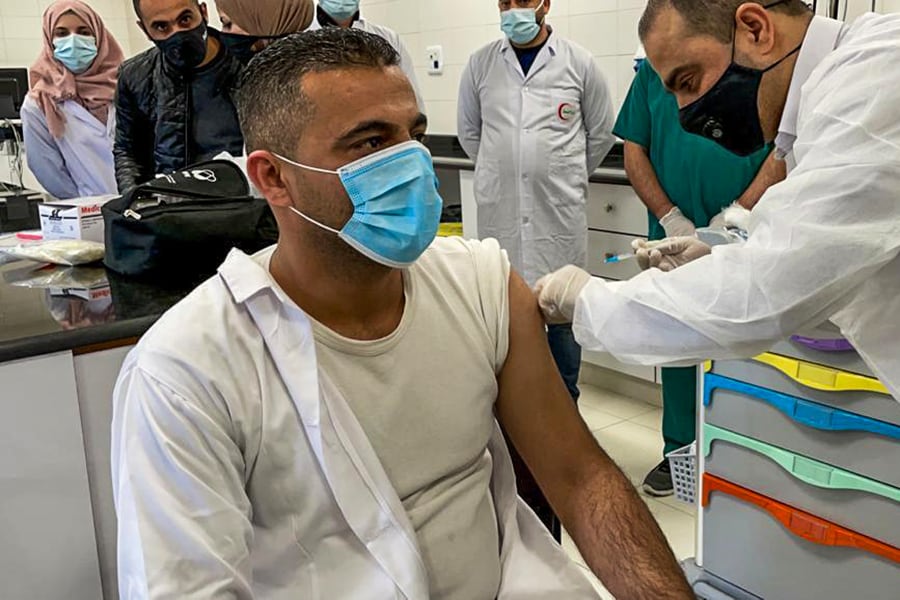
Israel's vaccine success unleashes a debate on Palestinian inequities
Israel quickly became the world leader in vaccinating its population against Covid-19, but almost all Palestinian residents of the occupied West Bank are still waiting for their first doses of the inoculation
 A man receives coronavirus vaccine during the vaccination campaign at Hugo Chavez hospital in Ramallah, West Bank on February 2, 2021 (Photo by Palestinian Health Ministry/Handout/Anadolu Agency via Getty Images)
A man receives coronavirus vaccine during the vaccination campaign at Hugo Chavez hospital in Ramallah, West Bank on February 2, 2021 (Photo by Palestinian Health Ministry/Handout/Anadolu Agency via Getty Images)
JERUSALEM — Israel quickly became the world leader in vaccinating its population against COVID-19, but almost all Palestinian residents of the occupied West Bank are still waiting for their first doses of the inoculation.
That disparity has set off a roiling debate about Israel’s responsibilities as an occupying power in one of the world’s most protracted territorial feuds.
To Israel’s critics, international law obligates Israel to give Palestinians access to vaccines comparable to what it offers its own citizens. But supporters of Israel’s policies contend that the Palestinians assumed responsibility for health services for their population when they signed the Oslo Accords in the 1990s.
While the Palestinians’ glaring vulnerability to the virus lessened somewhat this week — the Palestinian Authority officially launched a vaccination campaign by giving front-line medical workers doses received from Israel — the contrast with Israel remains striking. The disparity also reflects in part the stark inequality in access to vaccines between rich countries like Israel and other areas of the developing world.
The Palestinian vaccine campaign still lags far behind that of Israel, which with a population of about 9.2 million has already inoculated more than 3.3 million people with a first dose. They include a substantial percentage of the roughly 450,000 settlers living alongside Palestinians in the West Bank, who number between 2.5 million and 3 million.
©2019 New York Times News Service




